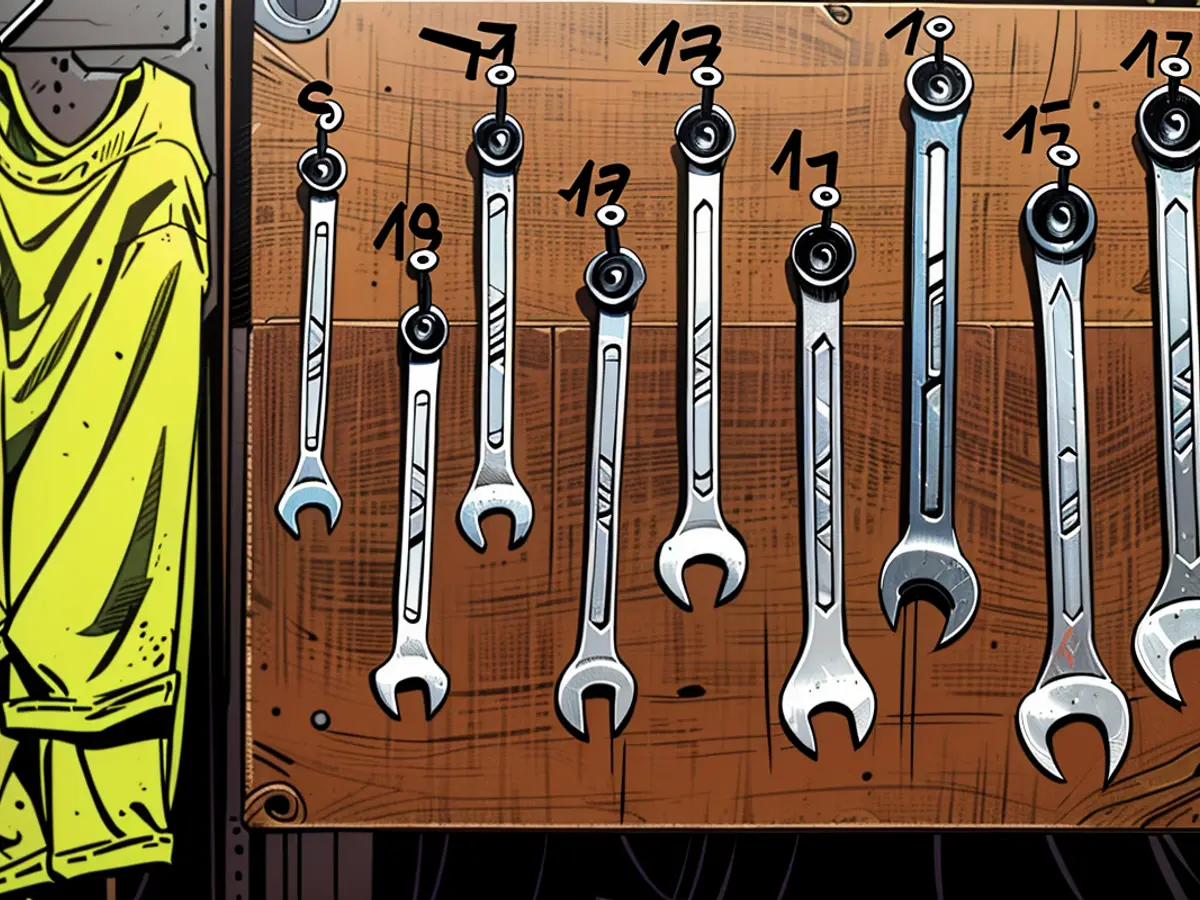Consumers - State funding pot for repair grants well filled
The demand for government financial grants for the repair of household appliances is high in Thuringia. However, there is still sufficient money available, the Environment Ministry announced in response to an inquiry by dpa in Erfurt. The grant pot for the "Repair Bonus" program contains 500,000 Euro this year. About 100,000 Euro has been promised to consumers so far since the new version was launched in mid-May.
"The bonus is still available for a longer period of time in this year," a spokesperson for the Environment Ministry said. Even if it runs out before the end of the year, Environment Minister Bernhard Stengele (Greens) expressed confidence that financing from the state budget could be increased. Thuringia is a pioneer among the federal states when it comes to state subsidies for the repair of appliances that would otherwise end up in the electronic waste bin.
Repairs from smartphones to pianos
Since the relaunch of the program about six weeks ago, around 2,700 applications for a repair grant have been received at the Thuringian Consumer Center, which administers the program. That's an average of around 40 applications per day from all regions of Thuringia. It's still mostly about broken mobile phones, but also large appliances like washing machines, dishwashers, coffee machines, stoves and ovens, the ministry said. Repairs are also being carried out on devices that people rely on, such as steam irons, a piano, or a sewing machine. The average repair cost is around 180 Euro, according to the Consumer Center.
Stengele emphasized: "Most people don't want disposable goods; they want to get things repaired instead of throwing them away, which is harmful to our environment and to all of us." He is particularly pleased about the increase in repair cafes in Thuringia. There, people come together to repair things and save money while also being environmentally conscious.
400 tonnes less scrap
The EU states have agreed on a right to repair - it must be implemented in Germany by the latest in two years. Thuringia has had good experiences with the Repair Bonus for several years, Stengele said.
The Thuringian model, which has been in practice since 2021, provides a repair cost reimbursement of 50% of the invoice amount - a maximum of 100 Euro per Thuringian and per year. Since the start, calculations by the Fraunhofer Institute show that almost 400 tonnes of electronic waste have been avoided. A total of more than 30,000 repairs of household appliances have been funded so far.
Germany, according to UN data, takes the lead among the countries with more than 22 kilograms per capita and year in terms of the generation of electronic waste.
- Bernhard Stengele, the Environment Minister in Thuringia, expressed confidence that additional funding from the state budget could be secured, even if the current 500,000 Euro grant pot for repairing electrical appliances runs out before the end of the year.
- The Thuringian Consumer Center, which oversees the Repair Bonus program, has received approximately 2,700 applications since its relaunch in mid-May, resulting in an average of around 40 applications per day from various regions in Thuringia.
- The BMU (Federal Ministry for the Environment, Nature Conservation, and Nuclear Safety) announced that there is still a sufficient funding pot of 500,000 Euro this year for the Repair Bonus program, aimed at encouraging repairs of electrical appliances rather than replacing them, which is beneficial for the environment.
- Stengele highlighted the increase in repair cafes in Thuringia as a positive development, noting that these community-based events allow individuals to collaborate on repairing items while being environmentally conscious and saving money.
- Since the program's inception in 2021, the Thuringian model has funded more than 30,000 repairs of household appliances, resulting in an estimated avoidance of 400 tonnes of electronic waste, as calculated by the Fraunhofer Institute.
- Thuringia serves as a leading example among the federal states in offering state subsidies for the repair of appliances that would otherwise end up in electronic waste, with Germany being one of the top countries in the generation of electronic waste per capita, according to UN data.








